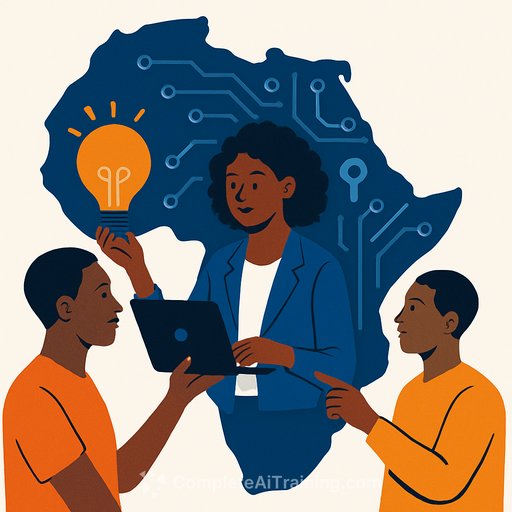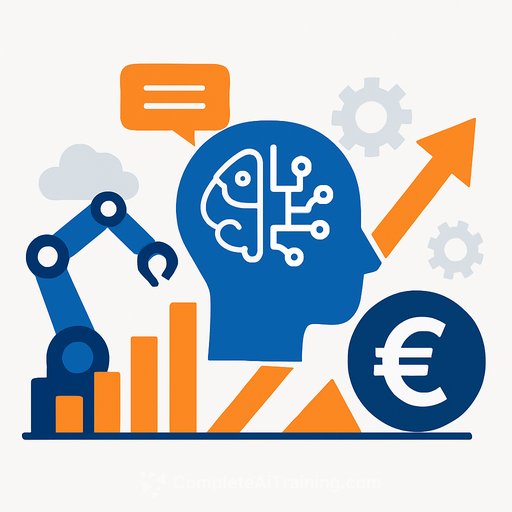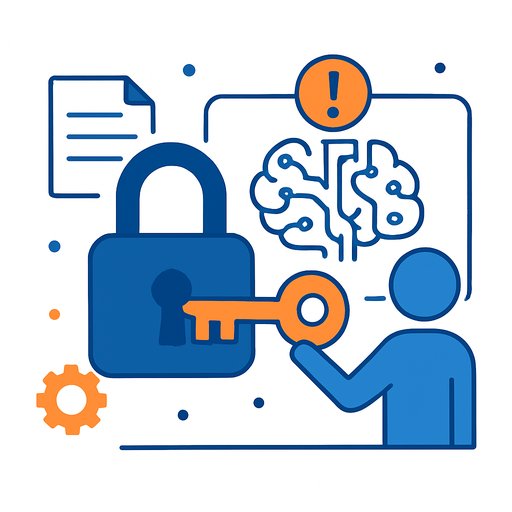AI Leapfrogging Opportunity in Africa
A new whitepaper from Cisco and Carnegie Mellon University Africa highlights how Africa’s unique demographic trends can spark an opportunity for the continent to leapfrog in artificial intelligence (AI). Africa’s young and entrepreneurial population could drive this transformation, but success hinges on upskilling and reskilling the workforce.
The report, titled "AI and the Workforce in Africa: Realizing the Region's Potential Through Public and Private Sector Collaboration," points out that Africa is home to the world’s largest potential AI workforce. By 2030, Africans will make up 42% of the global youth population, with 75% of the continent under age 35.
Youth and Technology Adoption
Youth engagement with AI is strong across Africa, with 78% reporting weekly use of AI tools—higher than in Europe and the United States. Despite this, much of the workforce is still employed in agriculture, informal trade, and service sectors that have yet to experience deep automation.
The right foundations could help Africa bypass some stages of traditional industrial and digital development, moving directly into AI-enabled employment. Notably, about 75% of African youth aim to start their own businesses within five years, with nearly 80% of new startups being digital-first. African women are leading entrepreneurial efforts at twice the global average.
AI’s Role in Entrepreneurship
Cisco emphasizes that AI can assist entrepreneurs in automating tasks, analyzing data, developing products, and accessing new markets. However, this potential depends on establishing strong digital infrastructure and effective skills training.
Francine Katsoudas, Cisco’s executive vice president, said: “AI alone isn't transformative. Real change happens when empowered people can access, trust, learn, and adopt AI technology.” She also highlighted that Africa’s dynamic youth generation is positioned to drive significant innovation.
Market Size and Regional Strengths
According to GSMA data, Africa currently accounts for just 2.5% of the global AI market, valued at $16.5 trillion in 2024. Despite this, AI could add $2.9 trillion to Africa’s economy by 2030, raising annual GDP growth by 3%.
While South Africa, Nigeria, Kenya, and Egypt remain digital leaders, other countries are developing specialized AI capabilities. Rwanda is recognized for its governance-led AI approach, and Mauritius ranks as Africa’s most AI-ready country, leveraging digital solutions in tourism and financial services. Ghana, Tunisia, Morocco, Senegal, and Côte d'Ivoire are also advancing in AI adoption.
Collaboration and Policy for Growth
Many African countries have launched national AI strategies, but the report stresses that success requires effective implementation, cross-sector collaboration, and policies that close gender, geographic, and socio-economic gaps.
Governments, industry, and civil society must coordinate phased strategies to build foundational AI capacity while promoting innovation and responsible governance.
Closing the AI Skills Gap
Africa’s AI talent pool currently stands at just 5,000 professionals, which falls far short of the 230 million jobs requiring digital skills by 2030. The continent also faces a brain drain, with about 70,000 skilled workers leaving annually.
However, the rise of remote work offers a chance to reverse this trend by allowing African talent to access global markets without relocating, earning foreign income while contributing locally.
Less than 25% of African university students are enrolled in STEM fields, with women making up only 30% of STEM students. The skills gap goes beyond technical expertise to include foundational knowledge and hybrid competencies.
The workforce needs to be capable not only of using AI tools but also building, adapting, and governing them. Demand is growing for skills in machine learning, natural language processing, cloud computing, cybersecurity, and data analytics.
Moreover, AI literacy is essential across sectors. For example:
- Farmers interpreting AI-generated crop forecasts
- Community health workers using diagnostic chatbots
- Logistics professionals employing predictive analytics
Skills Development Initiatives
In support of this, Cisco Networking Academy and the Connected Conservation Foundation recently launched a Protected Area Technician Training Program to upskill professionals in conservation technology maintenance.
The Cisco Networking Academy is a global initiative offering digital skills training through public-private partnerships. To date, it has empowered 1.6 million learners, including over 500,000 women.
For those interested in building AI skills aligned with this emerging market, exploring carefully curated AI training courses can provide a practical path forward. Check out Complete AI Training’s latest courses for structured learning opportunities.
Your membership also unlocks:






